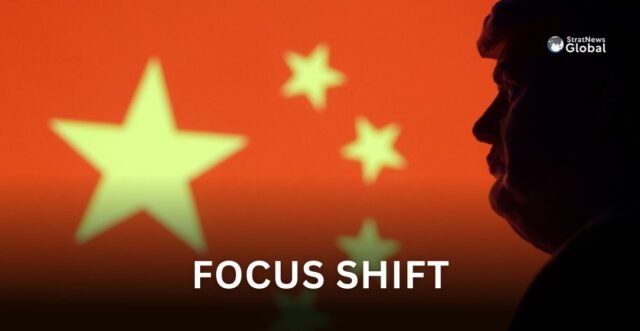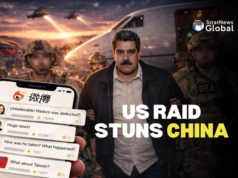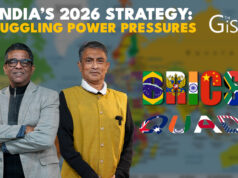China has long positioned itself as a peacemaker in the Ukraine war, with diplomatic efforts and proposals, but when Russian and U.S. officials met in Saudi Arabia this week, President Xi was meeting with tech entrepreneurs in Beijing.
Clear Priorities
China’s priorities are clear: it is focused on repairing its economy and trying to hammer out a deal with U.S. President Donald Trump to avoid another damaging trade war.
And while Beijing wants to be seen as a global peacemaker, it is seeking to do so without incurring costs or taking risks, especially if they could undermine its ties with Moscow, on which it relies for cheap energy.
“If China doesn’t buy gas from Russia, which country can provide enough gas to meet the needs of the Chinese people? It’s not possible, and it’s not safe,” China’s top diplomat, Wang Yi, this week told the Munich Security Conference, a top global forum on security and diplomacy.
The statement, observers said, was the clearest illustration of how China was unwilling to use a major lever it had to pressure Russia – its record-breaking purchases of close to 23 billion cubic meters of gas annually.
Without a meaningful role in the Ukraine process, China has been able to focus on trade and economy. Xi has directed Chinese bureaucrats to study Trump’s trade policies and prepare responses to his initial tariffs and threats, two people familiar with the situation say.
Behind Closed Doors
Trump stunned the world this week by opening peace negotiations directly with Russian President Vladimir Putin without Ukraine or Europe, offering concessions before the talks started, calling Ukraine’s President Volodymyr Zelenskyy a “dictator” and blaming him for the invasion Putin launched in February 2022.
In Munich, Wang called for “all stakeholders”, including Europe, to be at the negotiating table.
European diplomats said that while positive, Wang’s gesture fundamentally did not address the issue Europe has been raising with China for months: Its de facto bankrolling of the war through energy purchases and its support for Russia’s military-industrial base – which China denies.
Diplomats also played down the notion that Trump’s rapid outreach to Putin could undermine Xi’s “no-limits” partnership with Russia.
Ties between Brussels and Beijing have been frosty as the European Union raises issues including market access for European companies, the bloc’s massive trade deficit and China’s manufacturing overcapacity.
But despite greater engagement, China has not offered any concessions on those issues or made any decisive moves, anticipating the 10% tariffs Trump has imposed on Chinese goods was just his opening salvo, said the diplomats.
(With inputs from Reuters)





